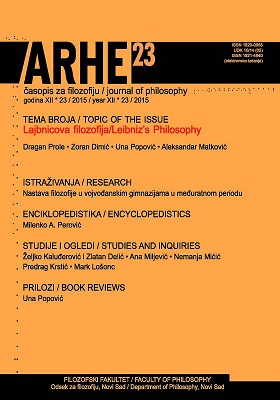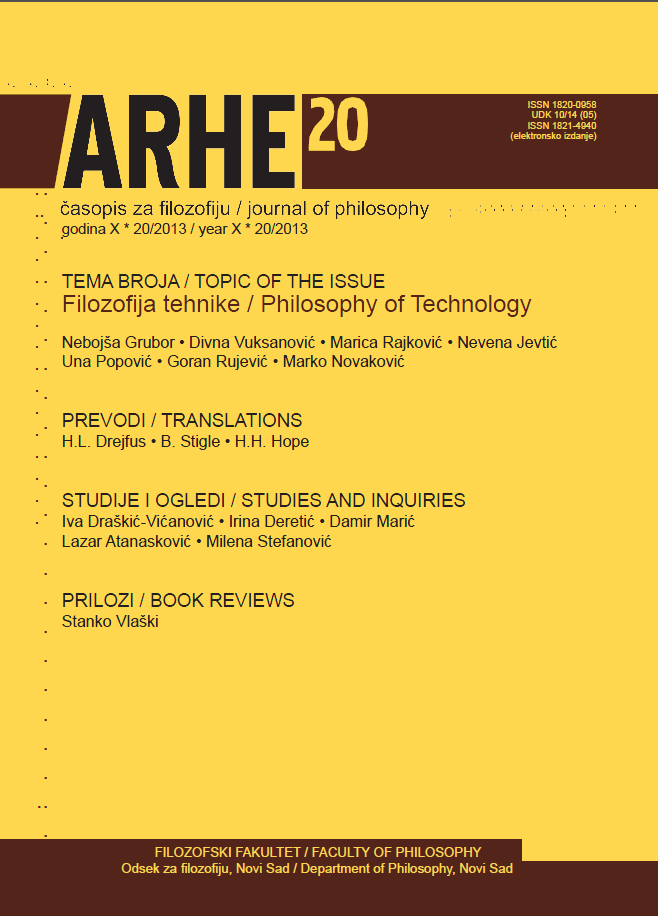Author(s): Željko Kaluđerović / Language(s): Serbian
Issue: 25/2016
Advocates of the questioning of the dominant anthropocentric perspective of the world increasingly strongly are expressing (bio)ethical requirements for a new solution of the relationship between humans and other beings, saying that adherence to the Western philosophical and theological traditions caused the current environmental and not just environmental, crisis. Attempts are being made to establish a new relationship by relativizing the differences between the man and non-human living beings, often by attributing specifically human traits and categories, such as dignity, moral status and rights to non-human living beings. In this paper the author explores antecedents of the views which differ from the mainstream Western philosophy, in terms of expansion of non-anthropocentric ethics, and finds them in the fragments of first philosophers of nature, which emphasize a kind of obfuscation of corporeal and mental elements, i.e. kinship of all varieties of life. Pythagoras, Parmenides, Empedocles, Anaxagoras and Democritus, in this context, considered certain animals and plants as sacred, i.e. they believed that they are, in a sense, responsible for what they do and, except that they can be driven by a natural desire, to breathe, feel, be sad and happy, they have a soul, discernment, awareness, the ability to think, understanding and reason. Most controversies, according to the author, are caused by the intention, in the modern environment, which is not only temporally but also spiritually distant from the Presocratic epoch, reasonable care on the protection of nonhuman creatures is replaced with an attempt to introduce the animals and plants into the area of par excellence of human moral phenomenon. In this context, these are attempts to recognize a kind of their moral status, i.e. to attribute to them emotional, spiritual and intellectual characteristics that are similar or identical to the ones that humans have. Finally, difficulties are reflected in the fact that such a (bio)ethics cannot set up and justify moral principles that would apply only to animals and plants, as it is still properly considered that man is the only living being who can act morally.
More...


